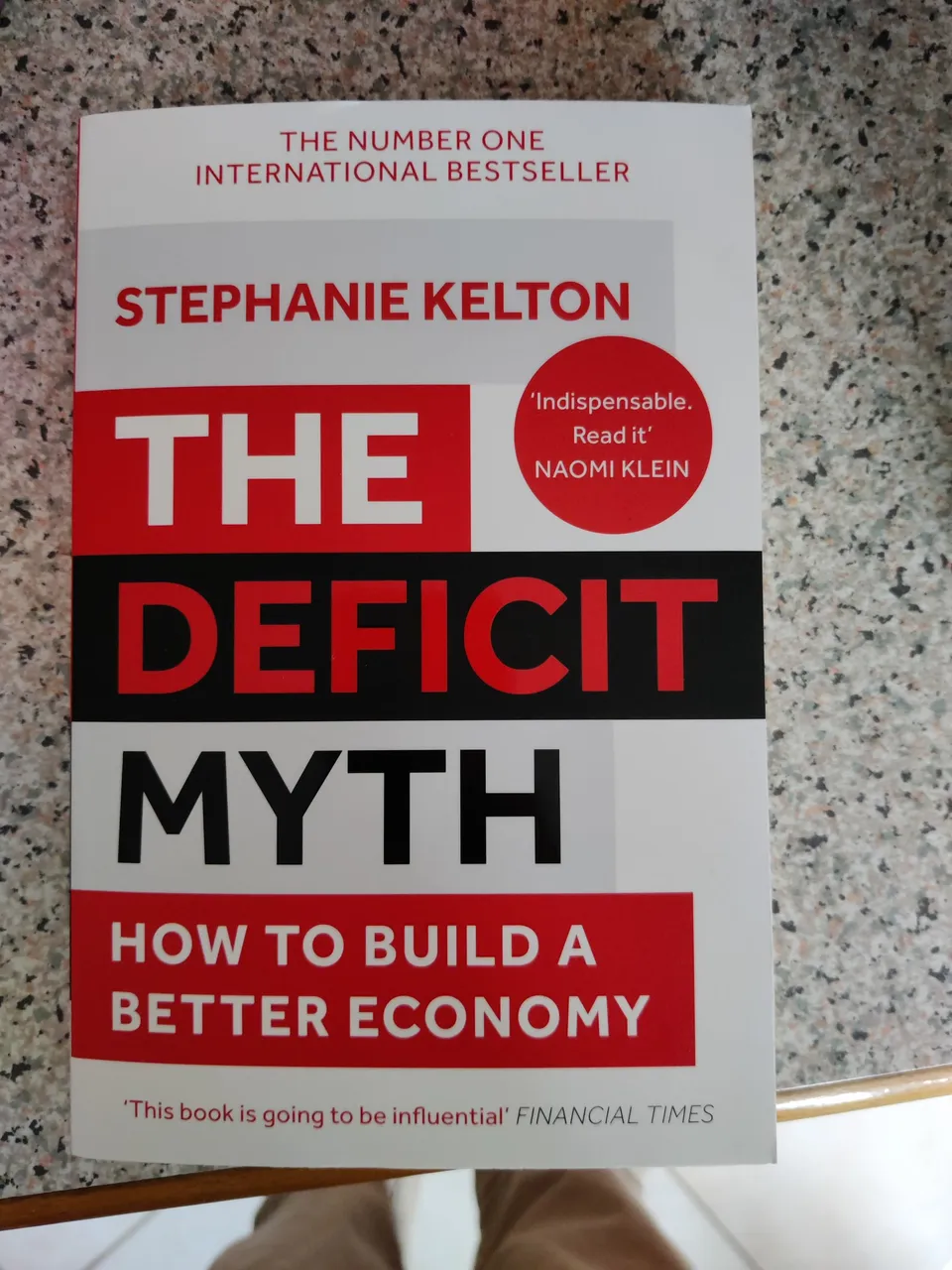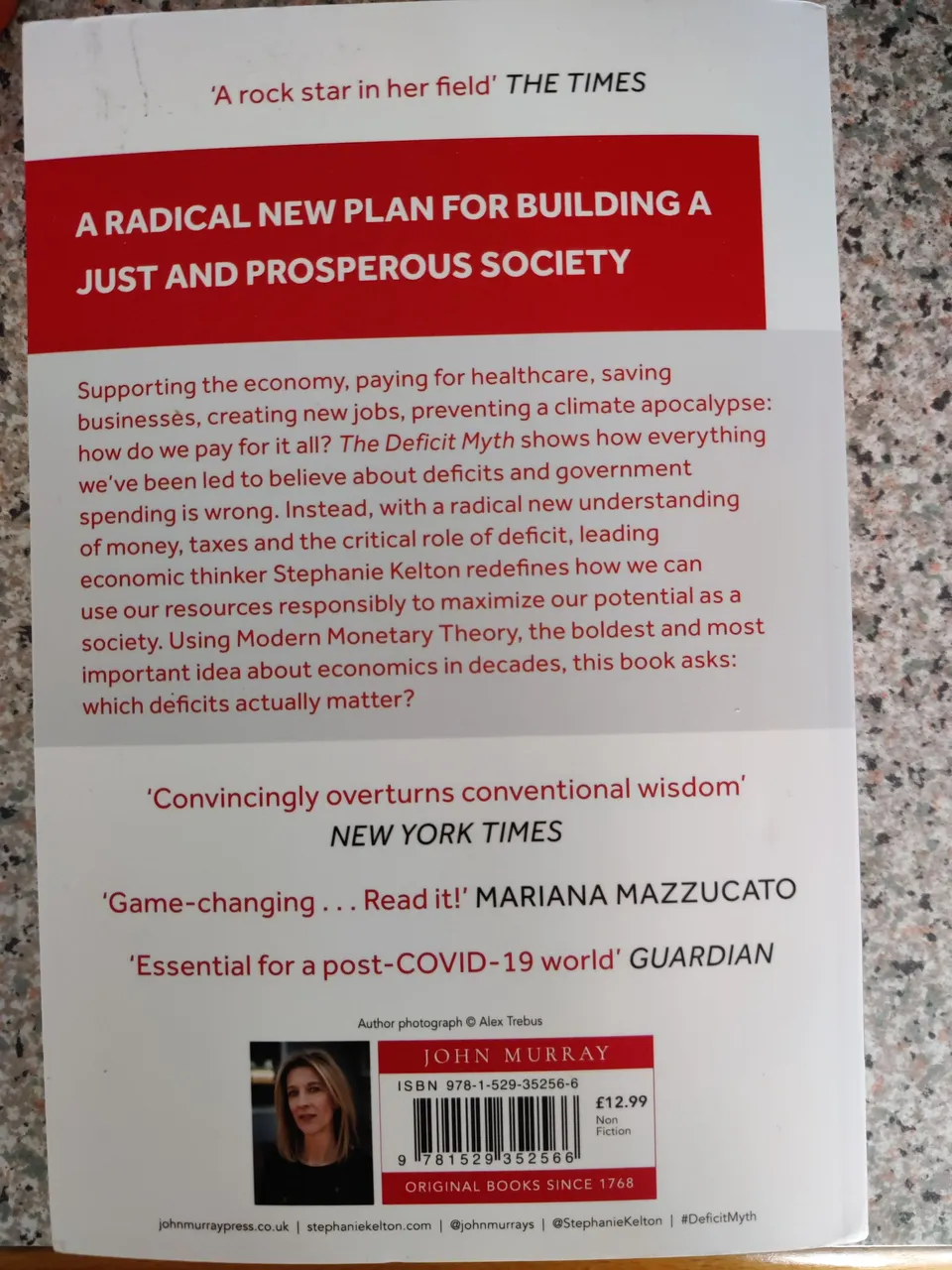
Sigh... I guess I should get this out of the way fast at the start. Not that it would stop any of the glib "print money free pass" sort of comments... but I may as well try.
All through my life, I've always been curious about many things... and there are many things that I have had an initial unbelieving reaction towards that has often enticed me to try to understand the viewpoint better. I think really truly believe that most ideas and positions are held from a different viewpoint, and they make sense when seen in the same light, and that it does well to understand to better inform your own ideas or integrate the ideas if they make sense.
If nothing else, it is a regression back to the pre-internet days of debate through reasoned understanding... and learning. All of that nuance has been lost in the false dichotomy that infects all aspects of our lives now...
It is the same learning drive that brought me to crypto... after the initial, "this can't work" phase. And lets not kid ourselves, if you didn't have that initial disbelief reaction, then it is quite possible that you haven't thought or understood much further than what someone else has parroted.
So, I had this same disbelief when it came to Modern Monetary Theory... as did probably most people, but I was determined to go beyond the memes and the one-liners.
Why?
Well, it is because it is quite self-evident that the dominant strain of economics (Chicago school) that most of the Western world has gravitated towards is quite patently not correctly describing how the world works... but we hold to it, because it makes "intuitive" sense. However, intuition is nothing better than a good story that we make up to kid ourselves... and the entire field of economics is great at "post-hoc" explainations... and economies are so complex that you can pretty much predict anything, and then layer your story on afterwards as to why it DID or DIDN'T happen.
... plus, there seemed to be the usual humanities (yes, economics is humanities....) trick of cherry-picking data and historical writings to support a pre-defined outcome (in this case, a particular economic ideology)... which if you bother going back to the source material and additional books, don't really support the assertions. But who does that?
Anyway, that brings us to Modern Monetary Theory... and contrary to common understanding, it isn't about freeing the money printer!
So, given my dissatisfaction at how the economy is working... and how the stories that we have been led to understand as "economics" are being used to further the ends of the few at the expense of the many... I was definitely curious about learning about a different fundamental understanding of how economies work. After all, if we don't understand what is of critical fundamental importance, then we won't be able to harness and tame the power of the economy.
Perhaps if your model of the economy isn't quite working, perhaps it is time to revisit the assumptions?
PLEASE read at least up to this point before commenting.... if you did, include the word "penguin" somewhere in your reply so that I can weed out the non-readers.

So, I have made it through the first few chunks of this book... and contrary to common understanding, Modern Monetary Theory is not a new concept. It has been floating around for a while, but always in the shadow of the dominant strain of economics. And interestingly enough, there are a few parallels and overlaps with the crypto way of thinking...
In fact, it started not long after the world moved to a fiat system of currency... and the fundamental difference in assumption is the identification of the government as the "issuer" of a currency, instead of a "user". This is where it differs from the simplistic but palatable "household" analogy of the government.
As an issuer, the deficit is NOT the constraint on government spending... if not, then what is? Well, it is inflation. And different ways of spending causes different outcomes on inflation... now that is much more difficult to measure and predict than "budget balances", so it is a much more nuanced take on the economy. So, not an internet ready concept...
... and YES, printing too much money is still going to cause inflation... but it is not the deficit number itself that does that.
As we in the crypto ecosystem know, the money printer is free to print whatever it wants... the computer just needs to be updated. And in fact, that is how government contracts and programs are funded. Not through taxation...
... but if not through taxation, why do we NEED taxation? Well, as a money sink (same as a token sink in token-economics) and to create a demand and purpose for the fiat currency. Without it, the fiat currency is pointless and worthless.
So, by identifying the true constraint on a budget (inflation, not deficit), the possibility is there for better managing the economy and society in general.
However, it is more than likely that at the moment, it is easier to scream "debt and deficit" and to keep pressing the buttons that we know don't do anything because the fundamental assumptions are mistaken...
Anyway, I'm still slogging through the book... hence the scatter brained approach to writing this post!
But it has been a bit of an interesting eye opener about what sort of economic assumptions have been made that have been ingrained into popular understanding... and even more interesting that most of the people that understand the workings of the economy/markets don't actually believe the stuff that makes it to politicians to peddle to the public!
I'm still up in the air about MMT, but I do see some interesting ideas about how the fundamental assumptions might need an updating.
If you made it to the end, then use the word "doghouse" instead!

I can also be found cross-posting at:
Hive
Steem
Publish0x
Handy Crypto Tools
Ledger Nano S/X: Keep your crypto safe and offline with the leading hardware wallet provider. Not your keys, not your crypto!
Coinbase Wallet: Multi chain wallet with lots of opportunities to Learn and Earn!
Binance: My first choice of centralised exchange, featuring a wide variety of crypto and savings products.
WooX: The centralised version of WooFi. Stake WOO for fee-free trades and free withdrawals! This link also gives you back 25% of the commission.
GMX.io: Decentralised perpetual futures trading on Arbitrum!
Coinbase: If you need a regulated and safe environment to trade, this is the first exchange for most newcomers!
Crypto.com: Mixed feelings, but they have the BEST looking VISA debit card in existence! Seriously, it is beautiful!
CoinList: Access to early investor and crowdsale of vetted and reserached projects.
Cointracking: Automated or manual tracking of crypto for accounting and taxation reports.
KuCoin: I still use this exchange to take part in the Spotlight and Burning Drop launches.
MEXC: Accepts HIVE, and trades in most poopcoins! Join the casino!
ByBit: Leverage and spot trading, next Binance?
OkX: Again, another Binance contender?

Account banner by jimramones
